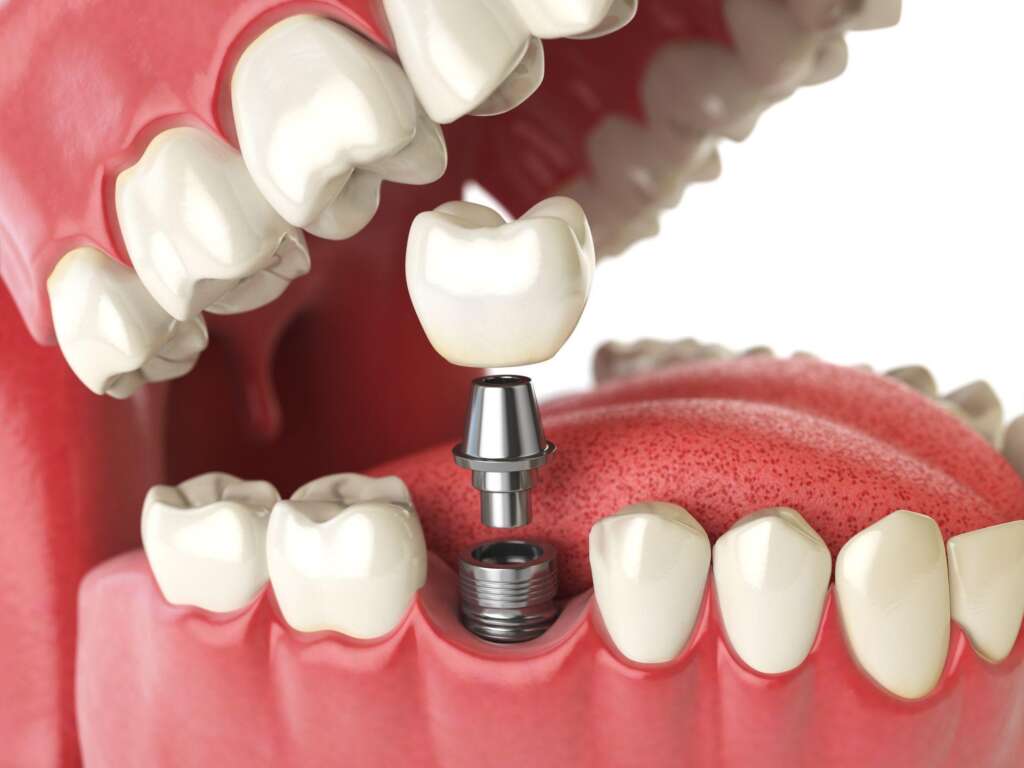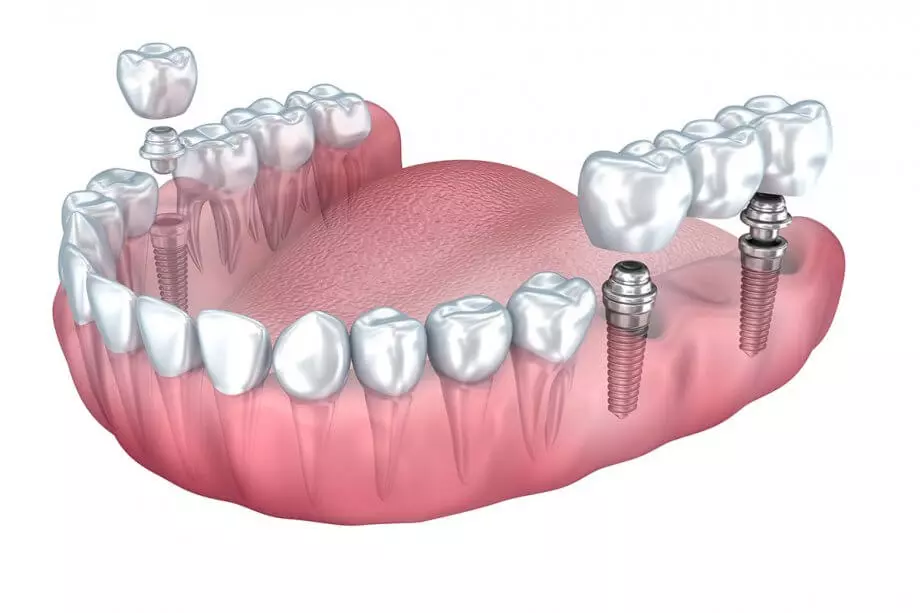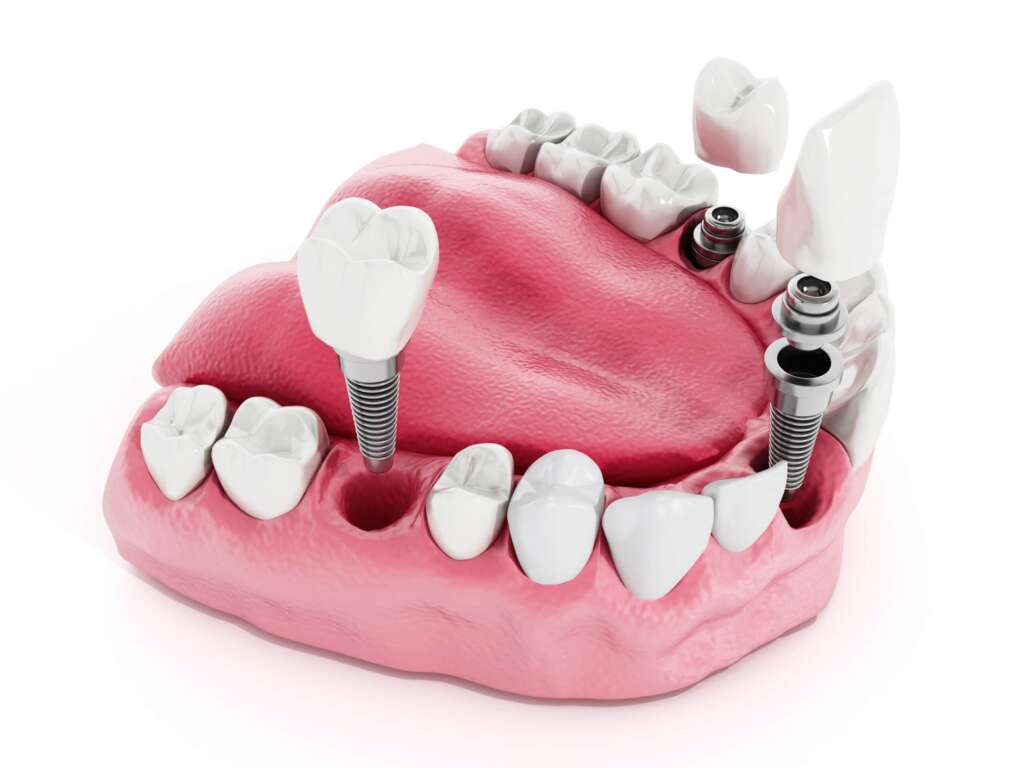



Skyturk Medical is proud of its more than 10.000 Patients from all over the world who have attended in the last 10 years Skyturk Medical one dental implants have undergone. As a pioneer of health tourism in Turkey, we introduce you to the excellent results of our patients.
A dental implant is an artificial tooth root that is placed in the jawbone to replace missing teeth. It usually consists of an implant body made of titanium or titanium alloy, which grows firmly with the bone. A crown, bridge or denture is then attached to the implant to restore the aesthetic appearance and function of the missing tooth.
Dental implants offer a number of advantages over other tooth replacement options. Here are some of the most important:
Natural Look and Feel: Dental implants look and feel like natural teeth. They fit seamlessly into the overall picture of the mouth and offer an aesthetically pleasing solution.
Improved chewing and speech function: Implants provide a stable base for the dentures, so that normal chewing and speech is possible without restrictions. Unlike removable dentures, dental implants stay in place and allow for safe and comfortable chewing

Long-term solution: With good oral hygiene and regular dental check-ups, dental implants can last for many years. They provide a permanent solution to replacing missing teeth and do not need to be replaced regularly.
Jawbone Preservation: When a tooth is lost, the jawbone in the affected area begins to degrade. Dental implants stimulate the jawbone and help prevent bone loss. This contributes to the long-term health and stability of the jawbone.
No interference with adjacent teeth: Unlike bridges, dental implants do not require damage or grinding of adjacent healthy teeth. The surrounding teeth are unaffected and their natural integrity is preserved.
In summary, dental implants are an effective and long-term solution for replacing missing teeth. They offer both aesthetic and functional benefits and can improve patients' quality of life. However, it is important that the procedure is performed by an experienced dentist and good oral hygiene is maintained after implant placement.


The implantation process:
Pre-examination: The dentist performs a thorough examination and assessment of jaw and oral health to determine suitability for dental implants.
Implantation: The implant is placed in the jawbone under local anesthesia. The healing time is usually several months, during which the implant grows into the bone.
Impressions and fabrication of the denture: After the healing period, an impression is taken to fabricate the denture, which is then attached to the implant.
Adjustment and checks: The dentist regularly checks the condition of the implant and dentures to ensure that they are working well and are healthy.
aftercare and maintenance: Good oral hygiene and regular dental visits are critical to the long-term success of dental implants. Daily brushing, flossing, and antibacterial mouthwash help keep the implants and surrounding area clean and healthy.
Dental implants are a popular and effective method of restoring missing teeth. While they offer many benefits, there are also some potential downsides that should be considered when deciding on dental implants. This article provides an overview of the possible disadvantages of dental implants.
Surgical Procedure: The implantation of dental implants requires a surgical procedure in which the implant is placed in the jawbone. This procedure can be associated with risks such as infection, bleeding, swelling, and pain. It is important that the procedure is performed by an experienced implantologist to minimize complications.
Bone integration: The success of dental implants depends on the integration of the implant into the jawbone. In some cases, there may be insufficient bone integration, which can result in the implant not being stable enough and having to be removed. Good bone health and adequate bone supply are important factors in the success of dental implants.
Lengthy Process: The process of placing and integrating dental implants can take several months. After the implantation, the jawbone needs time to grow together with the implant. Temporary dentures may be required during this time. The total duration of the process depends on the patient's individual ability to heal.
Cost: Dental implants are typically an expensive treatment option. The cost can vary depending on the number of implants, the type of denture and other individual factors. It is important to clarify the financial aspects and insurance coverage in advance.
Potential Complications: Although rare, complications such as infection, nerve damage, sinus injury, and implant failure can occur. A thorough preliminary examination and close cooperation with an experienced implantologist can help to minimize the risk of complications.
A dental implant is an artificial titanium tooth root that is placed in the jawbone to replace missing teeth.
Yes, dental implants are a safe and proven method of replacing teeth. However, the procedure requires careful planning and execution by an experienced implantologist.
With good oral hygiene and regular dental care, dental implants can last for many years, even a lifetime.
The implantation is usually carried out under local anesthesia, so that the procedure itself is painless. There may be slight pain and swelling after the operation, but this can be well controlled with painkillers and cooling.
Most people with adequate bone supply and good oral health are potential candidates for dental implants. However, a thorough examination by an implantologist is required to confirm suitability.
There are no strict age restrictions for dental implants. Both young adults and the elderly can benefit from this treatment option provided their general health is good.
The implantation process can take several months as the jawbone needs time to fuse with the implant. However, the exact duration depends on individual factors and the healing process.
Dental implants offer a long-term and aesthetically pleasing solution that does not compromise the surrounding teeth. Compared to bridges or prostheses, they offer a more stable and natural function.